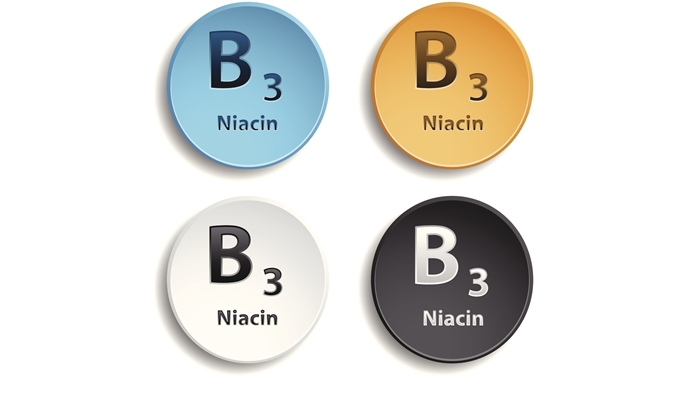
The downfalls of having a diet too high in calories and low on nutrition can take their toll. Toss out the junk and bring in whole, healthy foods to give you a wide variety of essential vitamins and minerals—including one not talked about enough, vitamin B.
Why You Need B Vitamins
B vitamins play a crucial role, all eight of them: B1, B2, B3, B5, B6, B7, B9 and B12. Combined together, they are often referred to as vitamin B complex. And there are many ways your body can be depleted of B vitamins. For example, heavy alcohol consumption will not only produce inflammation in your stomach lining, but can have an impact on your liver and interfere with the absorption of B vitamins. Coffee interferes with this absorption as well.
We all need a certain amount of vitamin B in our diets to stay healthy, but below are some of the main health concerns that will improve a great deal if you get your adequate Bs.
Asthma
People with asthma typically are low in vitamin B3 and B12. Both vitamins can help reduce wheezing and lower antihistamine levels. Vitamin B6 can help combat asthma attacks by lowering wheezing, inflammation and allergic reactions, too. Folate is the natural form of vitamin B9 that is only obtained from food. A lack of natural B9 is also associated with asthma. According to a 2005 study published in the journal Allergy, folate deficiency is associated with shortness of breath and asthma attacks. The study looked at 6,784 people between the ages of 30 and 60. Airway symptoms, asthma diagnosis and the intake of folate were all observed using a questionnaire. A follow-up five years later showed marked improvement.
Better Memory
Age-related memory loss is a huge problem and lack of B vitamins could be a contributing factor. Vitamin B9 deficiency is commonly associated with memory loss and forgetfulness. Vitamin B12 deficiency is linked with memory loss as well, along with dementia and Alzheimer’s disease.
There is a positive link between the recommended dietary intake of folate, vitamin B6 and B12 and better memory for middle-aged women and men, according to a 2004 study in the Journal of Nutrition, Health & Aging. The study observed 1,183 middle-aged men and women who consumed the recommended dietary intakes of folate, B6 and B12. Memory function improved in women from folate and vitamin B6. The men reported better memory performance and function from the intake of vitamin B6 and B12. Questionnaires were completed to self-assess health, psychological well-being and cognitive and memory function.
Anxiety and Depression
Deadlines and responsibilities run the workplace, and nutrition is sometimes an afterthought. Some people may feel quite anxious or depressed if they don’t meet expectations. The same goes for family responsibilities and juggling priorities at home.
Vitamins B3, B6, B9 (folate or the synthetic folic acid) and B12 are particularly important for depression and stabilizing mood, stress and irritability. B1, B5 and B7 also help improve mood and reduce stress. Folic acid in particular can help prevent a variety of mental health issues such as depression, paranoia and hostility. Deficiencies in folic acid and B12 are associated with depression.
The treatment of depression can improve with oral doses of 800 mcg of folic acid and 1mg of B12 daily, according to a 2005 review published in the Journal of Psychipharmacology.
And a 2013 study published in the journal International Scholarly Research Network of Psychiatry (ISRN) found that B complex supplementation can benefit adults with depression by improving the quality of mental health and mood. The randomized, double-blind, placebo-controlled study observed the effectiveness of vitamin B complex supplements for 60 adults with major clinical depression or other depressive disorders. Symptom improvements were noted on follow-ups assessments at 30 days and 60 days.
It is not always necessary to take B complex supplementation unless it is recommended by a health professional. It may be beneficial in the short-term for people with severe health issues and vitamin deficiencies. B vitamins are also beneficial for maintaining muscle tone for the gastrointestinal tract, as well as aiding a person with underactive adrenal or thyroid glands.
Start adding more vitamin B into your life and avoid these health issues! Healthy foods with B vitamins include wild salmon, avocado, organic eggs, cauliflower, asparagus, black beans, lentils, spinach, kale, almonds, pork and chicken. A good variety of these appealing foods will help you stay healthy and happy for a lifetime.
Related:
Sources:
Lewis, J.E., et al., “The effect of methylated vitamin B complex on depressive and anxiety symptoms and quality of life in adults with depression,” ISRN Psychiatry, January 21, 2013; doi: 10.1155/2013/621453.
Coppen, A., et al., “Treatment of Depression: time to consider folic acid and vitamin B12,” J Psychopharmacol., January 19, 2005; 59-65.
Thuesen, B.H., et al., “Atopy, asthma, and lung function in relation to folate and vitamin B(12) in adults,” Allergy, November 2010; doi: 10.1111/j.1398-9995.2010.02378.x.
Bryan, J., “Associations between dietary intake of folate and vitamins B-12 and B-6 and self-reported cognitive function and psychological well-being in Australian men and women in midlife,” Journal of Nutrition, Health & Aging, 2004; 226-32.













